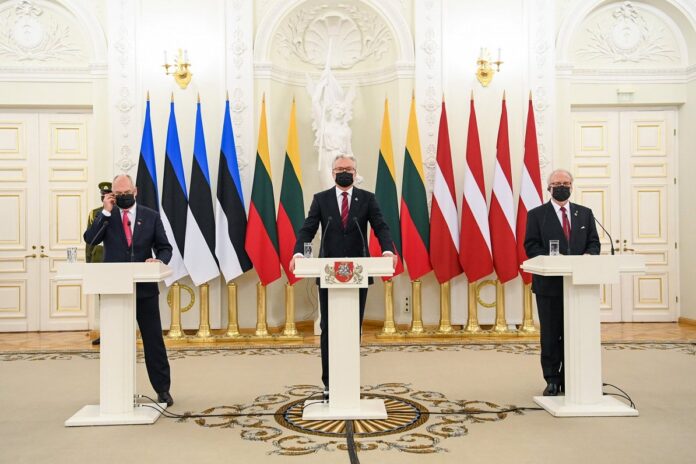
At a meeting in Vilnius on November 15, the presidents of Lithuania, Latvia, and Estonia urged the European Commission to launch a review of the EU’s migration policy. The Baltic leaders also expressed support for Poland as it is trying to keep out several thousand migrants stranded on the Belarusian border.
In their joint statement, Lithuania’s Gitanas Nausėda, Latvia’s Egils Levits, and Estonia’s Alar Karis called on the EU’s executive body to propose “the necessary changes to the EU legal framework on migration and asylum policy” and provide “adequate EU financial support for building physical barriers and infrastructure”. The Baltic presidents also reiterated their condemnation of the Belarus government using migrants for political purposes and called on EU and NATO to pressure countries of origin to help stop irregular migration to Belarus.
The three presidents voiced their concern “for the human rights and safety of the migrants currently in Belarus, who are being forced to breach the European Union border” and urged the international community “to hold the Lukashenko regime accountable for human trafficking”.
“The ongoing serious situation was addressed and assessed by the UN Security Council, and we call for concrete actions” by the UN Human Rights Council, the UN High Commissioner for Refugees and the International Organization for Migration, they said. Nausėda, Levits, and Karis also said the Baltics were ready “to continue supporting the Belarusian civil society”.
Following their meeting in Vilnius on Monday, the Baltic presidents held a remote meeting with their Polish counterpart, Andrzej Duda. Several thousand migrants converged on Belarus’ border with Poland last week. They set up camps and made attempts to force their way into Poland.
Fearing a similar development on its border, Lithuania has declared a state of emergency along its frontier with Belarus and at migrant camps. Over 4,200 irregular migrants have crossed into Lithuania from Belarus so far this year. Over 6,000 more have been turned away by Lithuanian border guards.
News from LRT.lt





























